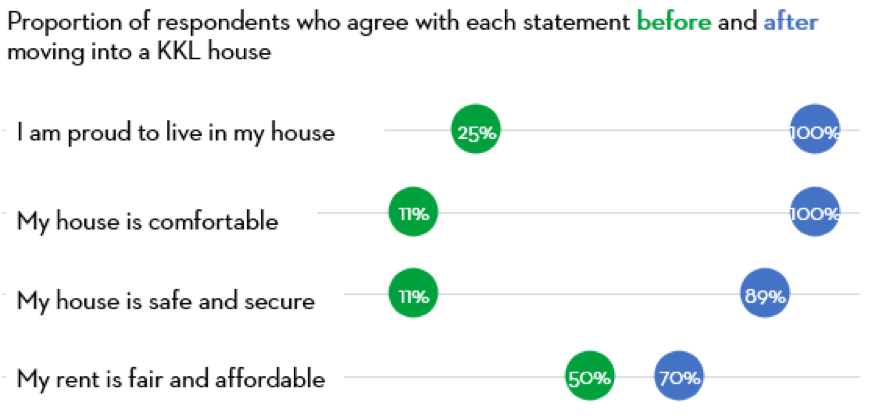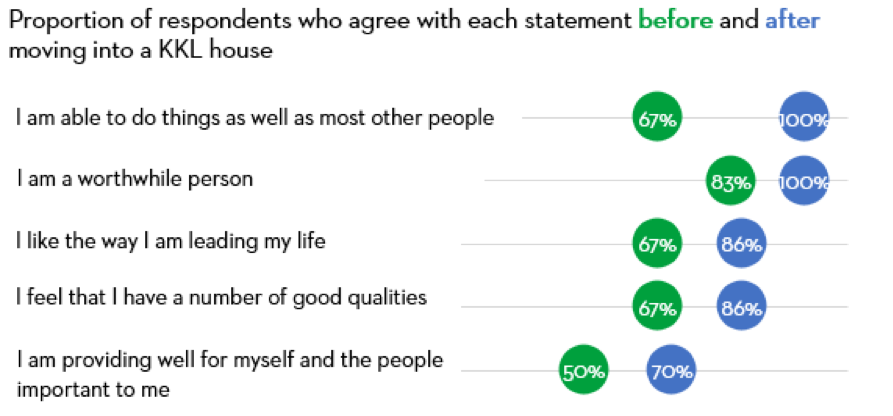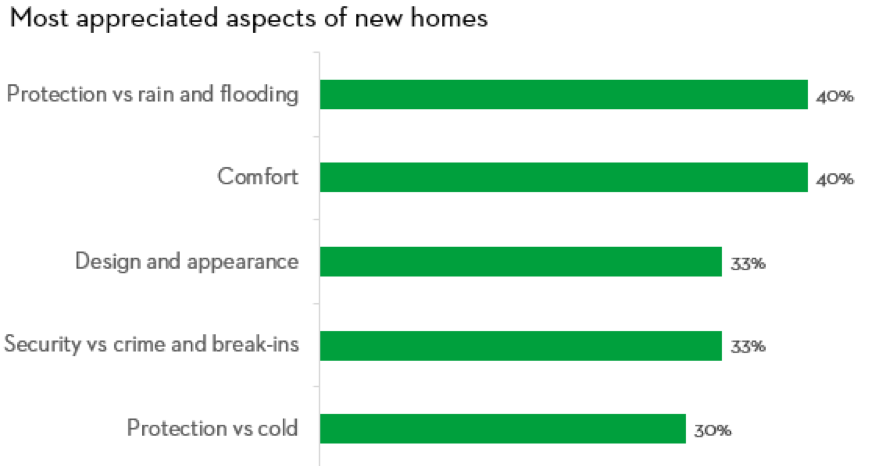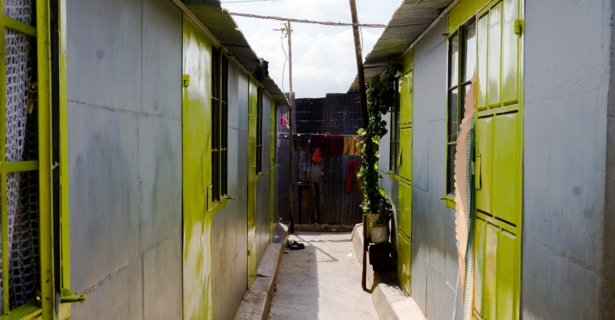In addition to delving into the rich experience of our customers and beneficiaries, our surveys unearthed several trends. We interviewed three current structure owners and ten current tenants across our Kibera and Kawangware sites, representing 100 percent and 66 percent of our respective client bases.
While we strived for consistency across sampling, initial language barriers and early versions of our survey questions may have contributed to some confusion among respondents. We had particular difficulty conveying the meaning of questions pertaining to global self-worth. However, elaboration from our enumerators translated these questions successfully. It was also particularly challenging to find an appropriate time to administer surveys, as many residents were absent during regular business hours and on weekends were reluctant to step away from time with friends and family to engage with us. Our enumerators worked around this challenge with admirable persistence and charm.
A common concern in slum-upgrading programs is the potential deleterious secondary effects, such as gentrification and displacement. This phenomenon has been observed in other Nairobi projects where low-income residents were granted upgraded housing, which they promptly rented out to middle-class Kenyans while resuming residency in their settlement housing.
It is thus reassuring to note that 89 percent of residents in our structures moved from mabati (iron sheet) houses from within the same communities where they currently live (the other 11 percent of respondents did not specify their previous living situation). There is no middle-class replacement gentrification effect demonstrated by the data.
When characterizing their before and after experiences with KKL, tenants reported improvements in comfort, security, and pride.

Tenants also reported slight improvements in global self-worth since moving into their KKL structures:

Sixty-six percent of tenants also reported an increase in the number of times they hosted guests in their homes. Finally, when asked what they appreciate most about their new homes, tenants emphasized protection from the elements, appearance, and security.

While customers and beneficiaries express high levels of satisfaction, two outstanding issues cropped up repeatedly from the data. Among structure owners, the terms of the loans proved problematic, as the payments more or less were the same as the rent prices they were collecting, resulting in zero or net losses on the homes. KKL is currently exploring alternative financing measures to address this issue.
Finally, among tenants, the primary critique of the structures appeared to be the temperature within the houses on the hottest days of the year. In testing, KKL houses measured five degrees cooler than traditional metal shacks; however, the overheating is clearly still an issue. KKL takes customer feedback seriously and is already working on a solution. What Next? With my time at KKL ending this week, I am happy to report that the company stands in a very solid position regarding customer satisfaction. Although I have tried, it is difficult to convey through words, pictures, numbers, and figures just how dramatically this product can change someone’s life.
For KKL, this data will soon be displayed on an “Our Impact” page of its website, which is currently under construction. This month, Winnie will also depart for the US where she will take our story to investors at the Global Social Benefit Institute (GSBI) in Santa Clara, CA.
For me, I will return to the United States and resume my studies at Fletcher, taking along the lessons I have learned here about social enterprise, monitoring and evaluation, survey design, and data collection and carrying with me the stories of the people who were kind enough to welcome a stranger into their communities.
Thanks very much to Kwangu Kwako, Ltd., MIT D-Lab, Tufts Institute for Global Leadership, and the Fletcher Office of Career Services for coming together to make this experience possible for me, and special thanks to Winnie Gitau and Simon Dixon of KKL and Laura Budzyna at D-Lab for guiding me along this summer. Asanteni sana!

